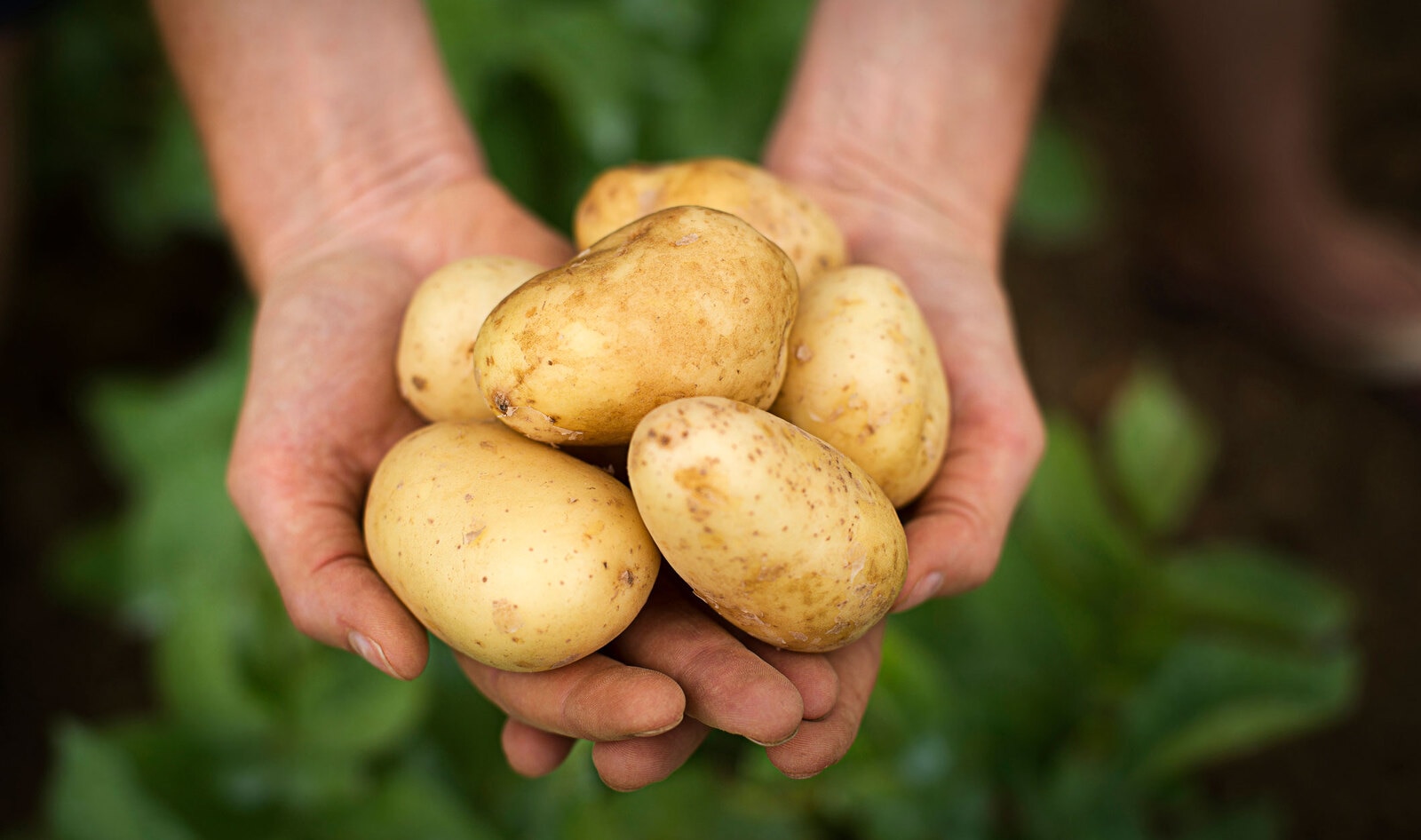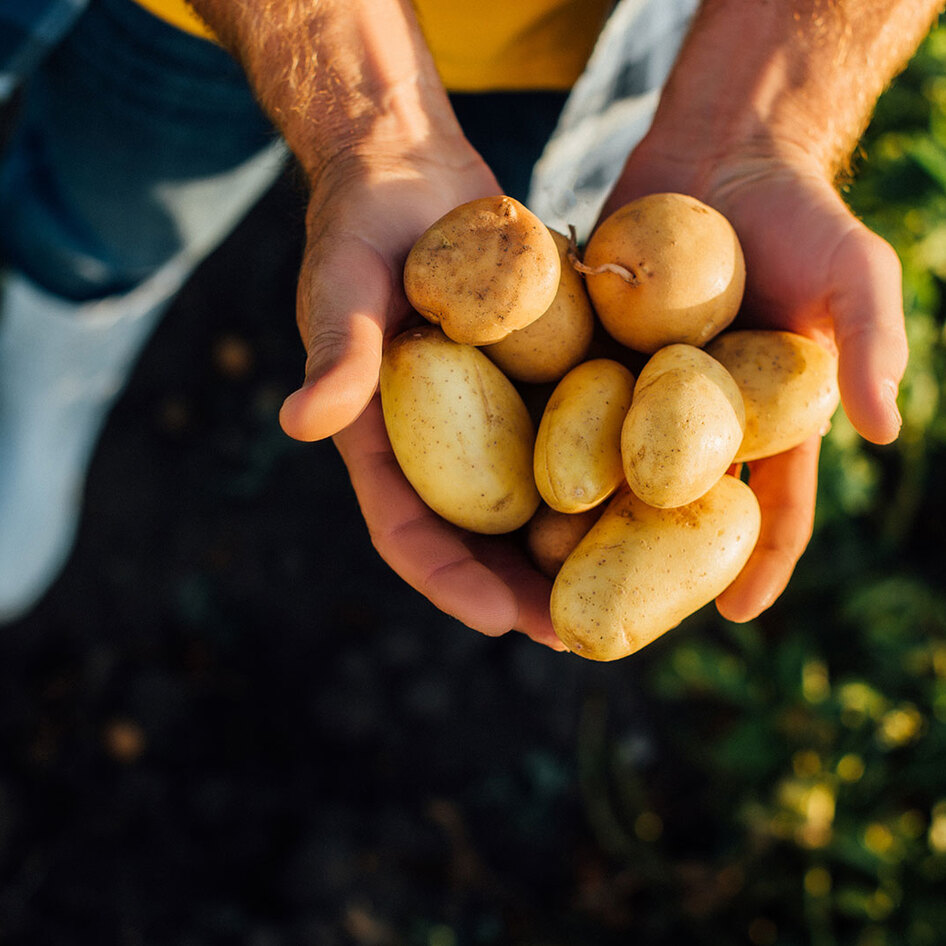Until recently, the only thing that we thought potatoes and eggs had in common was their ovular shape. We have long been using egg-shaped potatoes as a base for eggy recipes, such as these Deviled Potatoes, a play on the classic deviled egg. However, new discoveries are showing that they are similar in ways that transcend their appearance and reach into the realm of functionality. Can potatoes really serve as egg replacers? These startups are showcasing the unique properties of tubers that help them be just that.
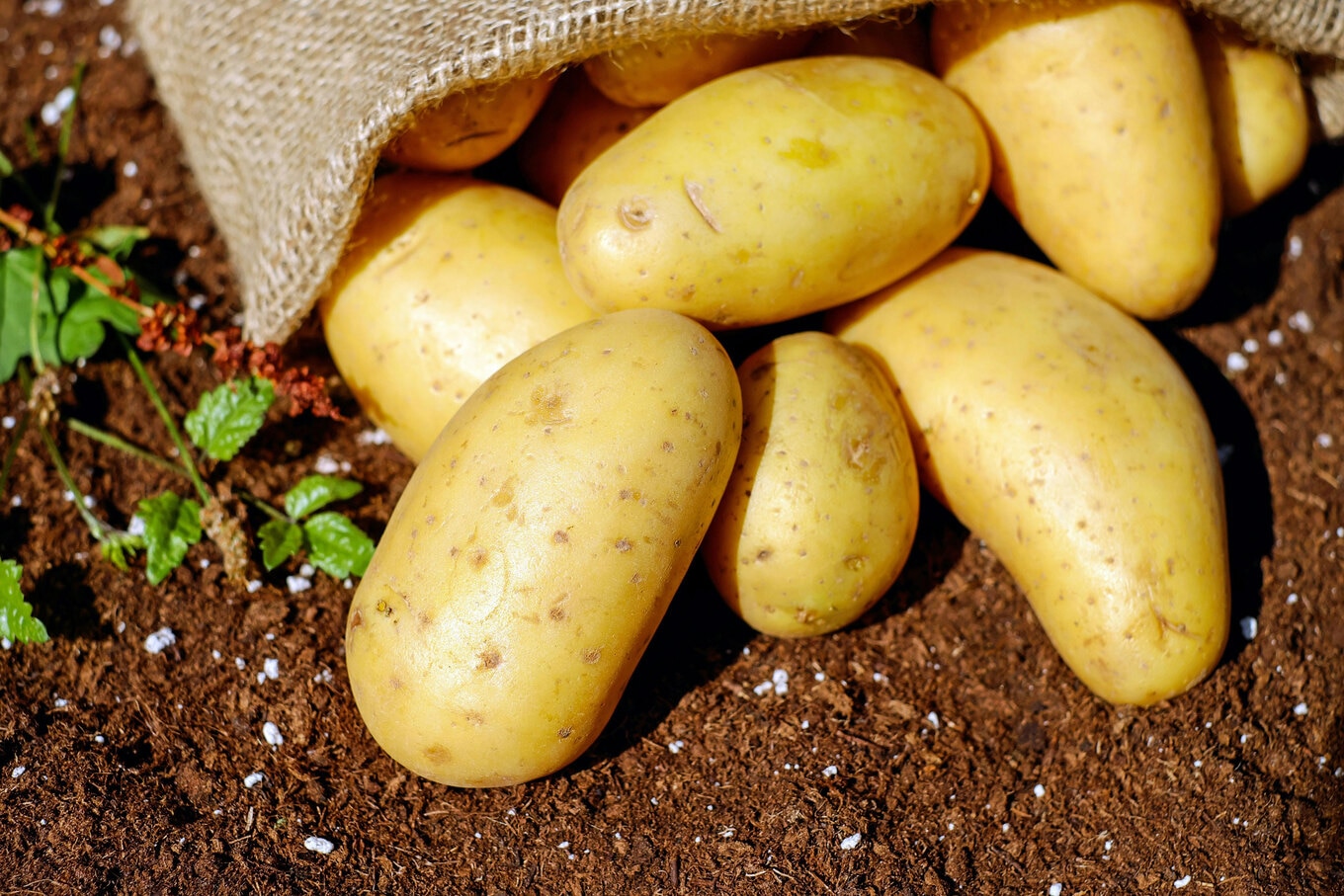 Pixabay
Pixabay
Potato: the new egg?
Spanish startup Awevo Foods recently launched its first product, Awevo liquid eggs in Europe. The company, based in Madrid, aims to provide a plant-based egg alternative that mimics the taste, texture, and appearance of conventional eggs.
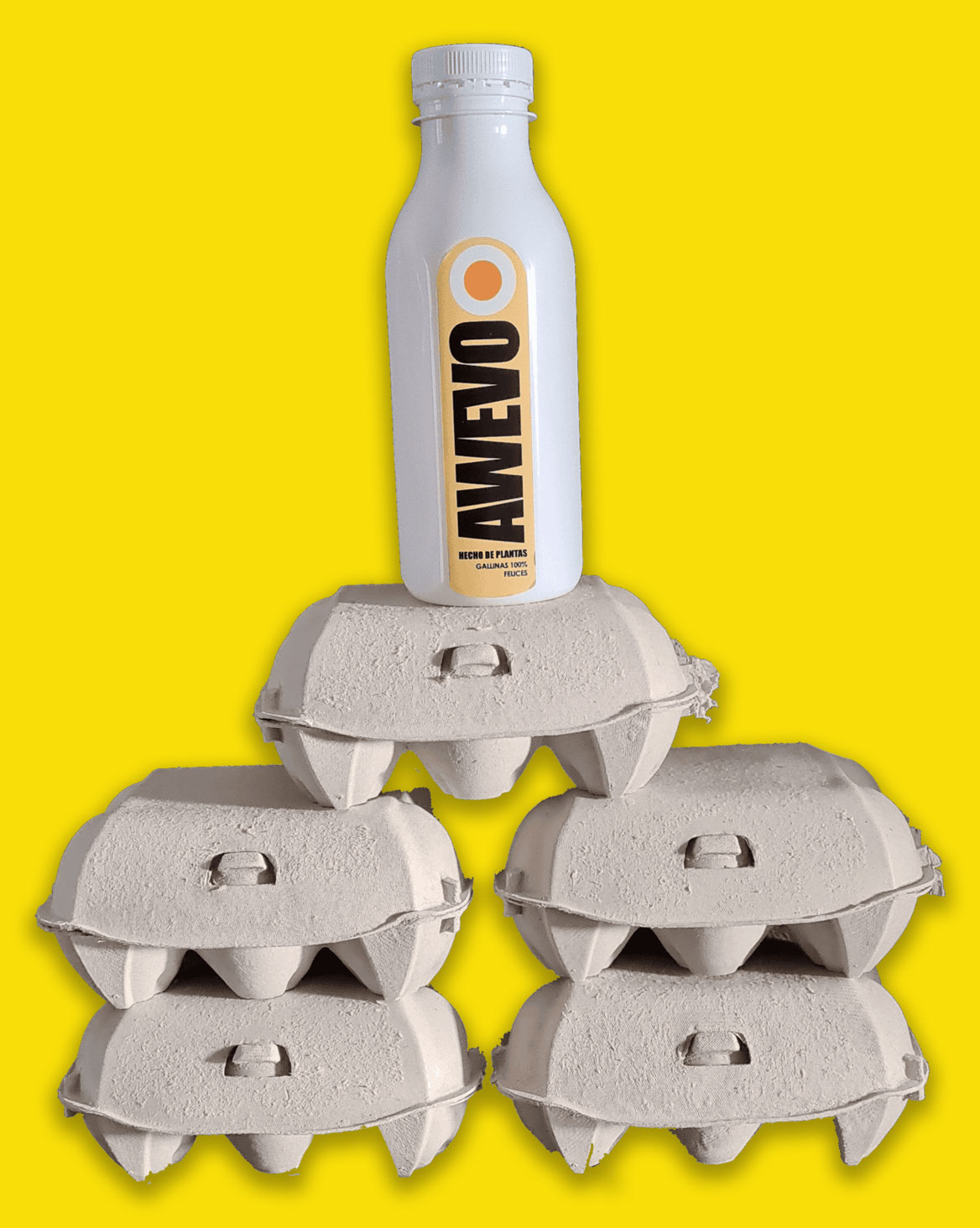 Awevo
Awevo
Made primarily from potato protein, Awevo’s liquid eggs contain no cholesterol or saturated fats, making them a healthier option. Awevo’s plant-based eggs are versatile and can be used to make scrambled eggs, omelets, cakes, and other dishes that traditionally require eggs.
“They will challenge all your senses,” the company said on its website.
In addition to liquid eggs, Awevo also recently unveiled Awevo Clara, a powdered egg white alternative. This allergen-free product mimics traditional egg whites in recipes for meringues, macarons, soufflés, sponge cakes, and more.
Awevo’s mission is to offer a more ethical and sustainable option for people looking to reduce their consumption of animal products. According to the startup, its production involves 90-percent less greenhouse gas emissions, 83-percent less land use, and 95-percent less water consumption than chicken eggs.
The company plans to expand its portfolio with new products such as boiled and poached eggs featuring runny yolks, all made with the power of potatoes.
Growing egg whites inside potatoes
Awevo is not the only company working to unlock the hidden potential of potatoes. Another startup, PoLoPo, is also exploring the potato protein market and has developed proprietary molecular farming technology to produce real animal proteins inside potatoes.
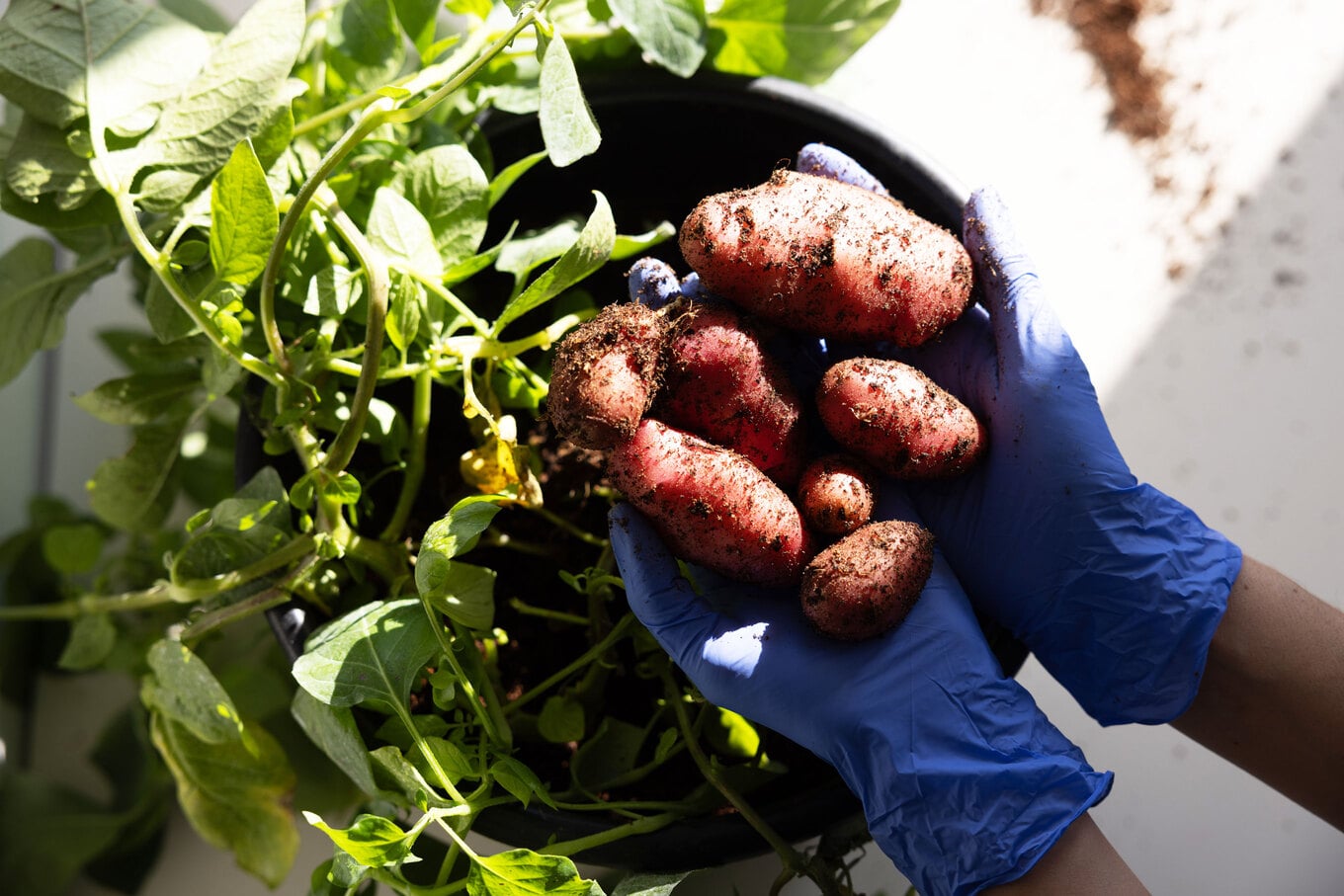 Tal Shahar
Tal Shahar
Founded by plant metabolic engineers Maya Sapir-Mir, PhD, and Raya Liberman-Aloni, PhD, PoLoPo closed a $1.75 million pre-seed funding round last year to further develop its technology and expand its team.
PoLoPo’s process involves directed metabolic engineering techniques to create a potato plant that produces high amounts of free amino acids, which are then used as building blocks for high-scale protein production within the potato tuber. Essentially, the startup turns potatoes into micro-biofactories that produce egg proteins, taking chickens out of the equation entirely.
The startup’s initial focus is on producing Ovalbumin, the main protein found in egg whites, targeting the $26.6 billion egg protein market.
“The technology allows us to express proteins in potatoes in a scalable, cost-effective way,” Sapir-Mir said in a statement. “With this substantial funding, we are aiming to reach several significant milestones, including protein-rich potato tubers and Ovalbumin functional samples.”
 Tal Shahar
Tal Shahar
Produced in more than 100 countries worldwide, potatoes are an abundant, resilient, cheap, and versatile yet underused food source. PoLoPo’s potato-to-protein pathway allows for commercial scalability since plants require relatively low investment to grow and are amenable to upscaling by common agricultural practices.
“We want to produce better food for the world,” Liberman-Aloni said in a statement. “Molecular farming technology, being harnessed for the production of high-quality proteins, presents a huge opportunity to do so, alongside taking the animals out of the equation and reducing the carbon footprint of the production process.”
In May, PoLoPo submitted its application for a Regulatory Status Review to the USDA’s Animal and Plant Health Inspection Service. This is the first step toward regulatory approval for its platform.
“The production of Ovalbumin in plants, not animals, will transform food processing with a price- and supply chain-stable option and set off a domino effect on sustainability, a big first step toward changing our food industry,” Maya Sapir-Mir said.
Approval is expected within six months and will establish that PoLoPo’s platform poses no agricultural or pest risk compared to traditional potato growing.
The benefits of eating more potatoes
Outside of their egg-replacing powers, potatoes are magical in even more ways, with two startups using the tubers as dairy replacers. In Sweden, DUG offers vegan milks made from potatoes, a much more sustainable alternative even when compared to oat milk. Vegan company The Simple Root makes its creamy dairy-free cheeses using potatoes and parsnips.
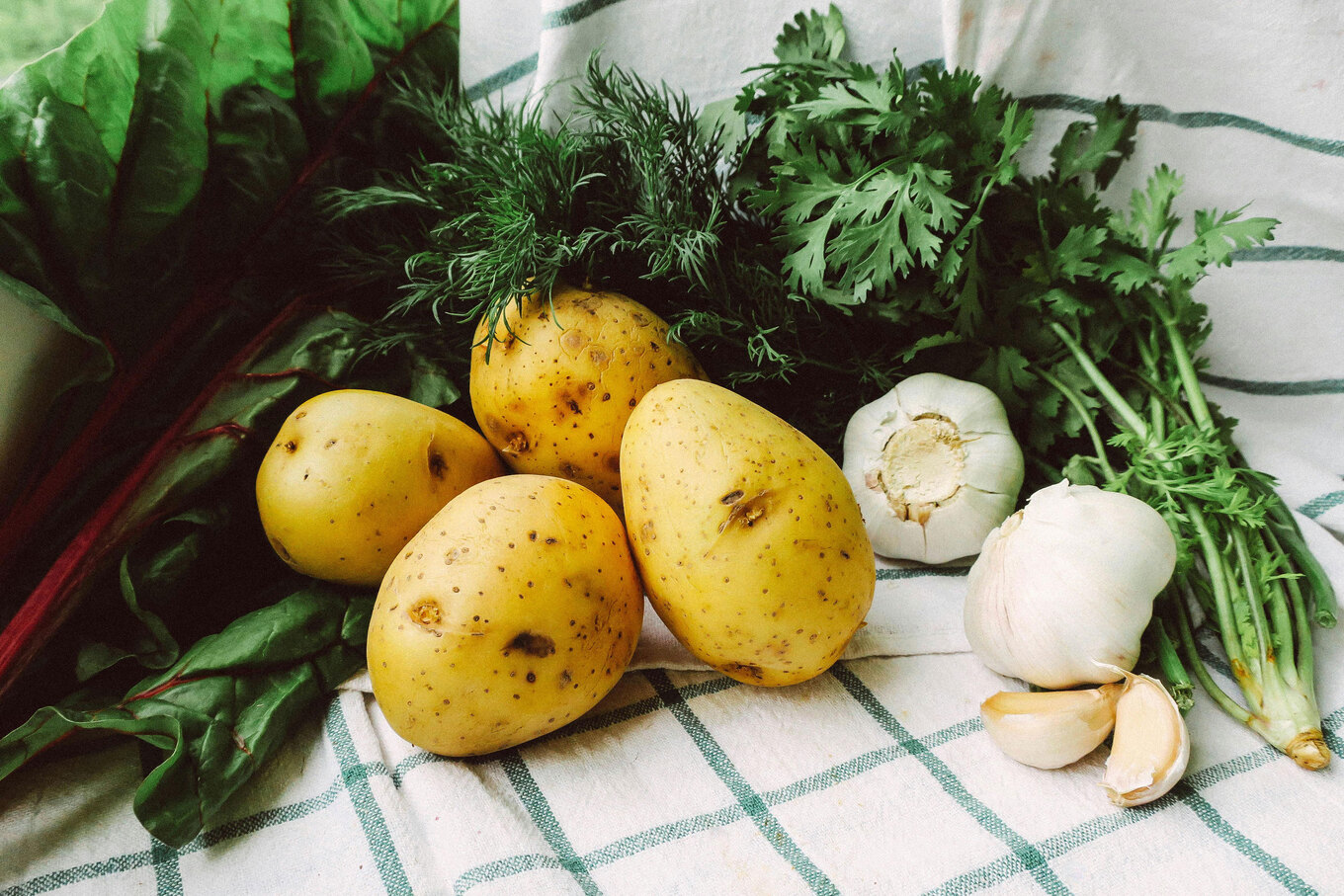 Christina Voinova
Christina Voinova
Plus, just eating plain and simple potatoes has its own benefits. Research indicates that potatoes are a rich source of fiber, vitamins, and minerals, including vitamin C, vitamin B6, magnesium, folate, and manganese. They are also a very good source of potassium, containing more per serving than bananas.
According to a study from Pennsylvania State University, eating one medium-sized potato a day, which is steamed or baked without added salt or saturated fat, can be part of a healthy, balanced diet.
Additionally, new studies reveal that potatoes do not increase the risk of type 2 diabetes when prepared healthily. Research from Edith Cowan University found that boiled potatoes had a neutral effect on diabetes risk, contradicting previous beliefs that linked potatoes to the condition. Another study published in the Journal of Medicinal Food found that incorporating potatoes into a diet can promote weight loss and improve metabolism, provided they are prepared without high-calorie additions like butter and cream.
 Getty
Getty
Potatoes also play a role in muscle building. Research published in Medicine & Science in Sports & Exercise found that potato protein can be as effective as animal-derived milk protein in building muscle.
In child nutrition, potatoes have been shown to help increase vegetable intake among school-aged children. A study published in Nutrients found that children ate more total vegetables when potatoes were included in their meals, highlighting the importance of presentation and familiarity in encouraging healthy eating habits.
For more plant-based stories like this, read:
JUMP TO ... Latest News | Recipes | Guides | Health | Subscribe

